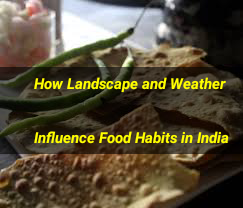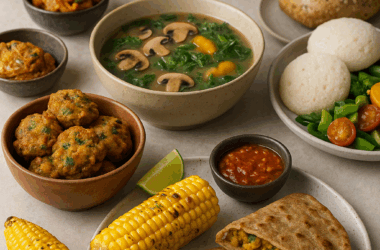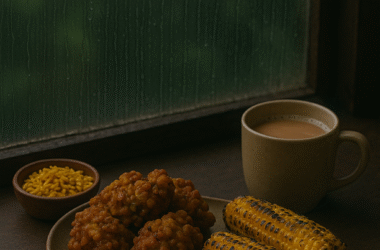Human beings, since the early days of civilization, have been eating and surviving on the food that is easily available around or the food crops that can be favorably grown in accordance to the landscape and climatic conditions of a particular place. Let us see today how these affect the food habits in India.
As we all know that India is a diverse country in terms of it culture, heritage, weather conditions as well as the geographical differences, the food items vary from region to region. Let us see the array of foods in various regions of India.
EAST INDIAN CUISINE
In East Indian cuisine, the staple grain happens to be Rice. The eastern belt of India is majorly, a Rice producing region. This is the reason why rice is popular in West Bengal and Orissa.

Another part of Eastern India does wheat production, which is why Bihar and Chhattisgarh mainly has roti as staple.
The fish based recipes are extremely popular because of the Eastern area of India is drained by the Ganges River as well as the nearby sea—Bay of Bengal.
During the colonial era, Poppy cultivation was encouraged. This led to the inclusion of poppy seeds (posto) in most of the Bengali cuisine.
Tea cultivation is extremely popular in eastern region. This is because of a favorable terrain for it’s plantation in areas, such as: Darjeeling and Assam.
SOUTHERN CUISINE
The southern region of India has an elongated coastline. This has led to the inclusion of fish into the cuisine and coconut from the trees.
Coconut oil is widely used from various southern recipes due to the ready availability.

The weather conditions in South India are mostly hot and humid. Hence the use of curry leaves and spices are incorporated in food. Pepper is also added in some dishes to add on to the heat.
You would also find that Coffee is more popular than Tea because of the weather in parts of South India like Coorg, Mysore etc is more suited for coffee plantation.
NORTH INDIAN CUISINE
Northern cuisine of India is truly the richest in it’s variety of spicy food and curries. The reason being many different cultures residing in this part.

The hot climate of Delhi, Haryana and Punjab leads to the food getting spoiled rather easily. To cope up this problem, people resort to addition of spices. Spices ensure that food stays unspoiled for longer duration. Also, spicy foods helps in easy perspiration that helps to keep your the body cool in hot/humid climate.
WESTERN CUISINE
Western cuisine is an amalgamation of North and South Indian style of cooking. The Goan cuisine is rich in fishes and is quite spicy due to the geographical and historical influences.
The Maharashtrian cuisine relies on addition of rich spices. This includes Ginger, Garlic etc.and powerful spices because of the humid weather. The spices help to keep food free from bacteria. They also help to flush out the toxins from the body, as well.
The Gujrati food is based more on daals, lentils and other pulses which can be easily grown in and around the desert area. Also, most of the people are vegetarian in this region of India.

So, with so much information at hand you must be surprised as to how the landscape and weather conditions widely affect the Indian cuisine. The food habits in India are directly or indirect always get influenced.
Utpal Khot
Copyright © Utpal K
1. If you share this post, please give due credit to the author Utpal Khot
2. Please DO NOT PLAGIARIZE. Please DO NOT Cut/Copy/Paste this post
© Utpal K., all rights reserved.
Copyright Notice: No part of this Blog may be reproduced or utilized in any form or by any means, electronic or mechanical including photocopying or by any information storage and retrieval system, without permission in writing from the Blog Author Utpal Khot who holds the copyright.





